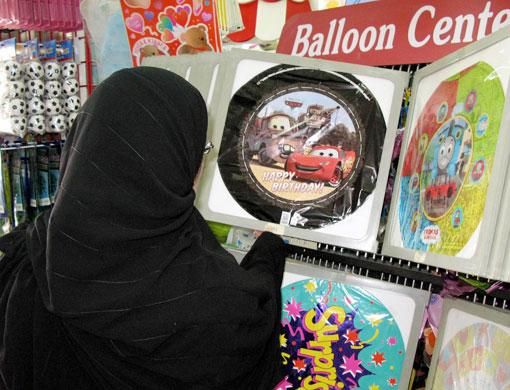Riyadh: When Hala Al Masa'ad invited her girlfriends over to celebrate her 18th birthday with cake and juice, little did the high school student know that she was stepping into an unusual public debate. Is celebrating birthdays un-Islamic?
Saudi Arabia's most senior Muslim cleric recently denounced birthday parties as an unwanted foreign influence, but another prominent cleric declared they were OK.
That has left Al Masa'ad with mixed feelings about her low-key celebration last month. She says she loves birthday parties because they make her feel that she has "moved from one stage in life to another."
"But I sometimes feel I'm doing something 'haram' [banned]," she said sheepishly.
The Saudi ban on birthdays is in line with the strict interpretation of Islam followed by the conservative Wahhabi sect adhered to in the Kingdom. All Christian and even most Muslim feasts are also prohibited because they are considered alien customs that the Saudi clerics do not approve.
Elaborate
Only the Muslim feasts of Eid Al Fitr, which marks the end of Ramadan, and Eid Al Adha, which concludes the annual pilgrimage to Makkah, are permitted.
Elsewhere in the Muslim world, though, including Egypt, the UAE, Lebanon and Iran, people routinely celebrate birthdays - especially for children. Among middle class and affluent families, parties can be elaborate, with cakes, toys, clowns, ponies and many presents. Interestingly, even in Saudi Arabia, it is not hard to find Saudis who celebrate birthdays or stores that cater to putting on parties, despite the ban.
The latest controversy started when a prominent Saudi Arabian cleric, Salman Al Audah, said on a popular satellite TV programme last month that it was OK to mark birthdays and wedding anniversaries with parties as long as the Arabic word "eid", meaning feast, is not used to describe the events.
That prompted a quick denunciation by Saudi Arabia's grand mufti and top religious authority, Shaikh Abdul Aziz Al Shaikh, who said such celebrations have no place in Islam and produced a list of foreign customs that he suggested were unacceptable.
One for 'every occasion'
"Christians have Mother's Day, an eid for trees and an eid for every occasion," said Al Shaikh, who also heads the Presidency for Scientific Research and Religious Edicts, told the Al Madina newspaper. "And on every birthday, candles are lit and food is given out."
There is no question that the television remarks by Al Audah, who is not employed by the country's religious establishment, contradicted several fatwas, or religious edicts, issued by senior Saudi clerics.
One such ruling, by the previous mufti, Shaikh Abdul Aziz Bin Baz, said Muslims should not emulate the West by celebrating birthdays. Still, some Saudis welcomed a loosening of the prohibition.
"Allowing such celebrations can be an element that can strengthen ties among people and contribute to an increase in the happy occasions in our society," wrote Ebrahim Bu Dawood in Al Eqtisadiah newspaper.












